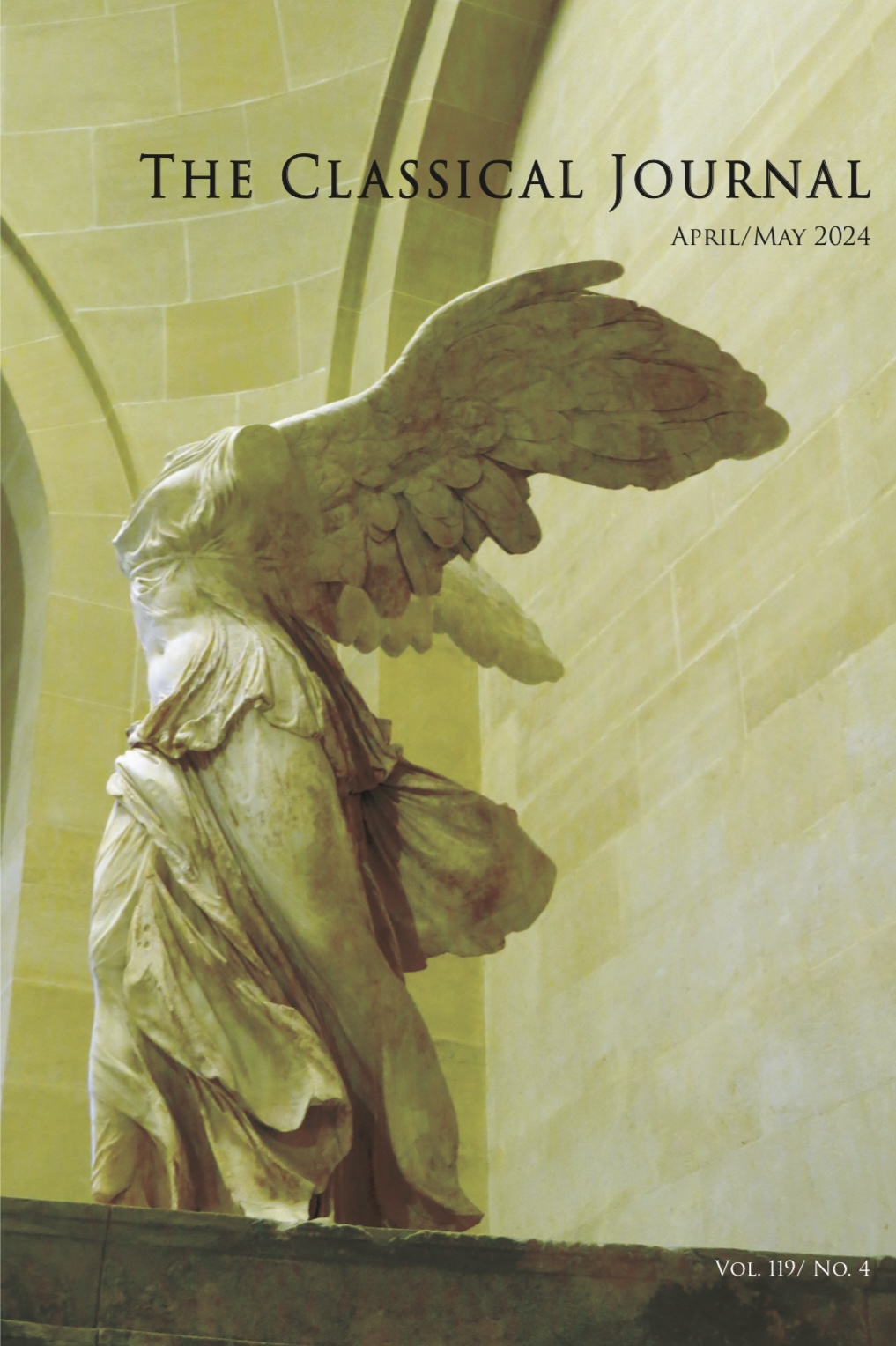The following articles are contained in CJ
119.1
Abstracts of Articles
Muses in the Sky: Lucretius' Evocative Telestich and its Multiple Revivals in Latin Poetry
In the first seven lines of his opening proem, where we notoriously find a Hymn to Venus, Lucretius compensates the Muses with an invocative Muse-telestich spelling MuSAS/ MuSIS, which is signposted by caeli … labentia signa and thus connected to the Aratean tradition of both heavenly and written “signs”. Moreover, Lucretius’ telestich establishes a firm tradition including (so far) Catullus, Vergil, Horace, Ovid, and Lucan, who mark some of their most emphatic—predominantly, but not exclusively, proemial—passages with variants of the Lucretian Muse-telestich and adjust them to their respective poetic programs. The Muse-telestich thus became a textual device by which Latin poets watermarked their highest poetic aspirations in exceedingly creative ways.
All That Glitters: The Golden Age of Rome in the Ars Amatoria
I argue that Ovid depicts Rome as a Golden Age at the beginning of Book 1 of the Ars Amatoria, long before he makes the comparison explicit in Books 2 and 3. My approach is largely comparative, as I consider motifs common across various representations of the aurea aetas, such as commerce between gods and men and the absence of sailing. I then consider this new vision of paradise on earth in the context of the four long-recognized treatments of the Golden Age in the Ars Amatoria. Ovid’s sense of irony exposes faults in supposed Golden Ages and instead praises modernity for reasons completely counter to the moralizing of the Augustan regime.
Non Fit Morte Miser: Pompey the Great as Aristotelian Tragic Hero in Lucan's Bellum Civile
Pompey’s character in Lucan’s Bellum Civile provokes the same emotions as the tragic hero. Like an Aristotelian tragic hero, Pompey is condemned by fate but also exhibits certain defects which lead to his defeat and murder. Lucan focuses on the flaws of indecision and ambition which contribute to the general’s fall from his illustrious position. Although Pompey is intellectually and morally imperfect after the Battle of Pharsalus, he shows signs of improvement in both respects. At his assassination, moreover, Pompey accepts his place within fate, faces death magnanimously, and carries on the resistance against Caesar even after death.
Augustus, Tiberius, and the Prediction of the Accession of Galba
Suetonius records that Augustus had predicted to the child Galba that he would taste imperial power, while Tacitus and Dio attribute a similar address to Tiberius. In this article I argue that Augustus addressed Galba as Suetonius claims, but that he did not intend his words to be understood in the way that they were, as a prediction that Galba would rise to the throne. I also argue that Tiberius was quoting Augustus when he addressed Galba in similar fashion, and that he did so to signify his belief that he had fulfilled the alleged ominous significance of Augustus’ words to him by his recent promotion of him.


